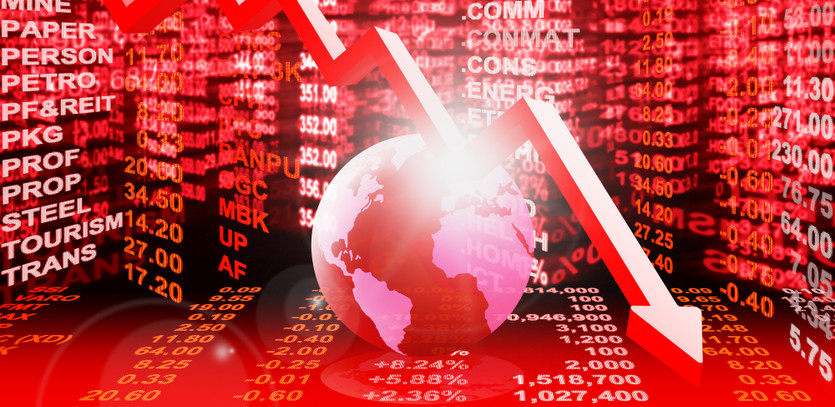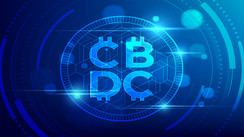The Unpredictability of the Stock Market
An inherent component of the stock market's character is unpredictability. It exists in a constant state of flux where prices of stocks shift like sand dunes in a desert storm. These oscillations primarily arise from market participants speculating on future trends, placing bets based on their often uncertain predictions. While these fluctuations tend to be gentle in most instances, there are times when the graph of stock prices can depict a rollercoaster ride.
Such sudden and significant price swings can have their roots in unforeseen circumstances like wars or global pandemics. Alternatively, they may be incited by the arrival of fresh information or the occurrence of rare, unpredictable events also known as black swan events. These unexpected twists and turns can trigger a flurry of activity among investors, resulting in short-term volatility and sudden price shocks.
However, it's crucial to note that such jolts don't necessarily lead to stock prices taking a nosedive. Some of the most dramatic price shocks in stock market history have also given birth to unlikely winners along with obvious losers.
Unexpected Shocks and Market Reaction
- Stock prices can change suddenly due to crises or fresh information penetrating the market.
- Volkswagen emerged as a big winner in 2008 when Porsche revealed its majority share in the company.
- Zynga's stock experienced a sharp decline, mainly due to its association with Meta (formerly Facebook), whose shares took a downward plunge post its IPO.
- Meta Platforms Inc. underwent the most significant single-day loss in stock market history, losing $232 billion in a single day.
- GameStop (GME) was the epicenter of an unprecedented short squeeze in 2021, causing some hedge funds to suffer losses in billions.
A Shining Example: Volkswagen
In what can be referred to as one of the most momentous short squeezes in history, automaker Volkswagen shot up to become the "most valuable company" globally over a single trading day. Before this significant spike, Volkswagen was largely perceived to be an independently owned organization. The market adopted a decidedly bearish view on its future prospects, making it an attractive target for short-sellers.
However, on Oct. 28, 2008, a bombshell announcement from Porsche changed the course of the game. It revealed a 74.1% ownership share in Volkswagen that it had quietly amassed via derivatives trading. This revelation resulted in Porsche effectively seizing control over Volkswagen's operations. This surprising turn of events triggered a panic among institutional and individual investors, who rushed to liquidate their short positions.
The upshot was some shares being sold for more than €1,000, momentarily crowning Volkswagen as the world's largest company based on sheer market capitalization. At the apex of its performance during the day, Volkswagen's share price had skyrocketed by more than 93%. As the year came to an end, Porsche found itself facing accusations of concealing its investment activities. However, the charges were eventually dismissed, marking the end of an era of turmoil.
An Unforeseen Triumph: Gateway Industries
Gateway Industries was a relatively unknown web design firm trading for merely a penny per share, and its sole employee, CEO Jack Howard, wasn't exactly making headlines for his prowess. On Feb. 8, 2011, the company experienced a black swan event when esteemed media entrepreneur Robert F.X. Sillerman announced plans to acquire Gateway. The very announcement of Sillerman's intentions was enough to send Gateway's stock rocketing by over 20,000% to $2.97 per share. Later, Sillerman amalgamated Gateway Industries with several other firms to establish his startup media and entertainment company, Function (X), which was rebranded to Viggle Inc. in 2012.
A Major Setback: Meta Platforms
On Feb. 3, 2022, Meta Platforms Inc. (META), previously known as Facebook, witnessed an astounding $232 billion dip in market value within a day's trading. This staggering drop surpassed the record previously held by Apple Inc. (AAPL) just 17 months prior. The company's earnings failed to meet analyst expectations, and the shocking revelation of Facebook's decline in daily users added to the frenzy. The stock's value plummeted by 26%, wiping out hundreds of billions of dollars in the process.
An Exceptional Win: Amazon
Following closely on Meta's shocking loss, another tech giant seized the opportunity to set a new record. On January 4, 2022, Amazon (AMZN)'s market capitalization swelled by $190 billion in a single day, outperforming Apple's record from the previous week. A promising quarterly earnings report was responsible for this 14% rise. However, over-optimistic investors would soon face a reality check as Amazon experienced its largest single-day loss since 2006 just three months later.
A Downward Spiral: Zynga
In the second quarter of 2012, Zynga (ZNGA), an online gaming development firm, declared that it had missed projected earnings. This news precipitated a 40% drop in its stock during after-hours trading. Its association with Meta (formerly Facebook) and disappointing earnings led to Zynga's stock falling by $3.03.
A Unexpected Windfall: GameStop
At the dawn of the COVID-19 pandemic, few could have predicted that GameStop (GME), a struggling brick-and-mortar retailer, would become the hot topic of 2021. A spectacular short squeeze initiated by retail investors on Reddit forced several hedge funds to close their short positions with losses in billions.
A Historical Recap: The Biggest Changes in Stock Prices
The history of the stock market has seen many dramatic twists and turns. Following closely on the heels of Meta Platforms' record-breaking single-day loss, Amazon (AMZN) rebounded by 14%, achieving the largest one-day gain in U.S. stock market history. The company's market capitalization grew by an astonishing $191 billion.
Understanding a short squeeze's mechanics is fundamental to making sense of these dramatic changes. Short traders aim to profit by borrowing shares, selling them, and then buying them back at a lower price. However, if the prices don't fall as anticipated, these short sellers are forced to purchase shares to close their positions, inadvertently sending the share price even higher.
The most massive short squeeze in history occurred in 2008 when Volkswagen's prospects took an unexpected turn for the better after Porsche revealed a controlling stake. This resulted in short sellers rushing to cover their positions and a consequent sharp increase in the share price, briefly making Volkswagen the largest company globally.
The Final Take
The stock market's ebb and flow is a daily occurrence. However, when a company's performance impacts an entire sector or even the whole market, it inevitably draws attention. Whether a company surprises the market with an unforeseen acquisition like Gateway or disappoints with poor earnings like Meta, the market always has its winners and losers.





